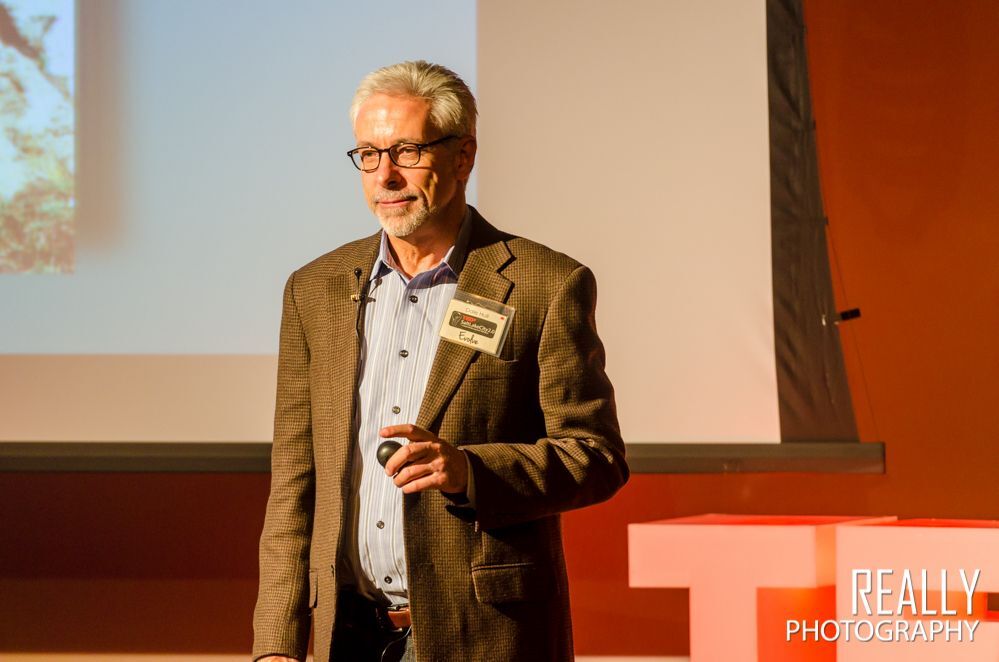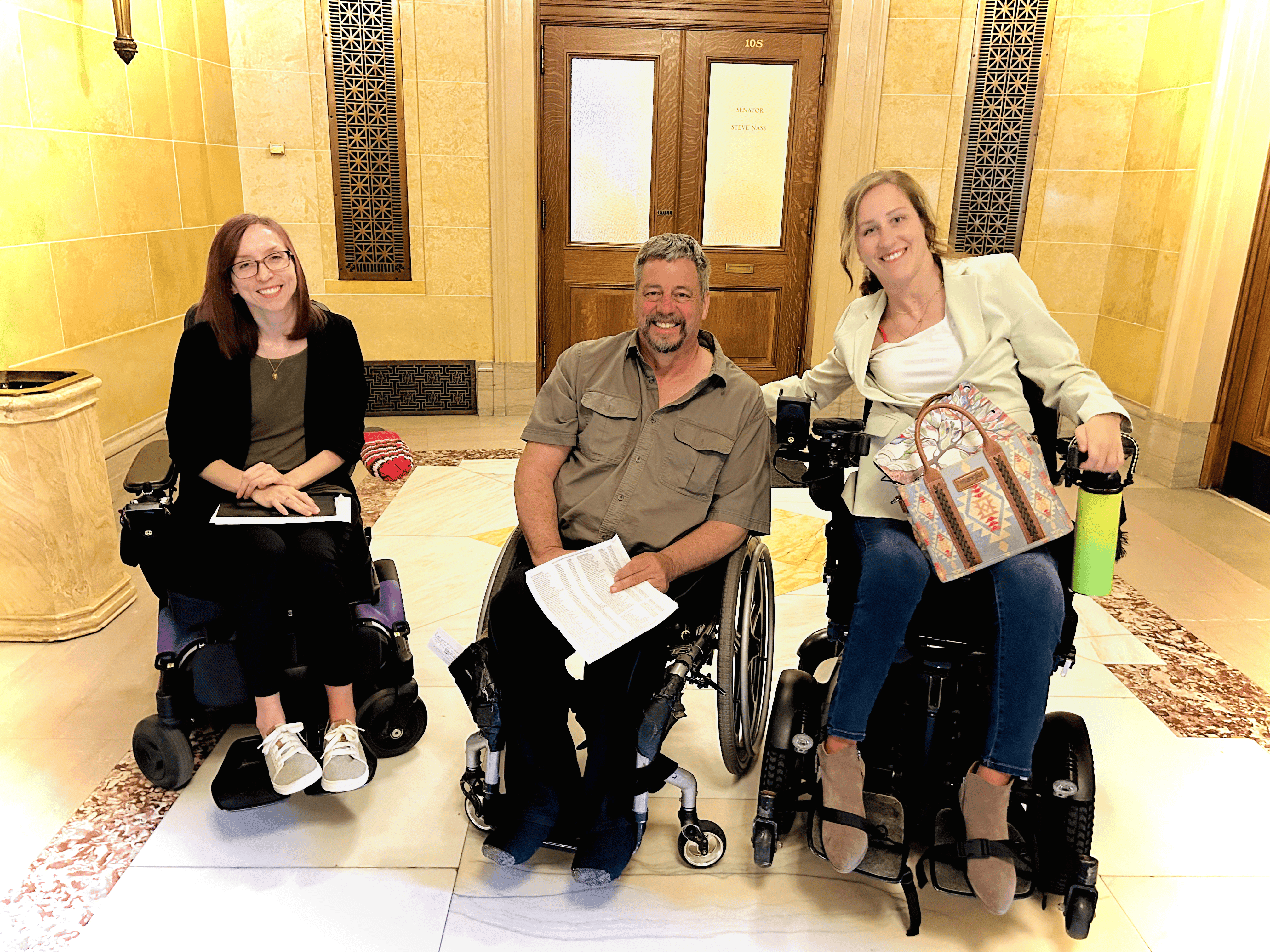
Dale Hull, MD, MPA, speaking at TEDx 2.0 Salt Lake City in 2013. Image credit: Really Photography via Flickr
Upcoming at the Unite 2 Fight Paralysis’ 17th Annual Science and Advocacy Symposium in Salt Lake City: Lana Zholudeva, PhD, describes an initiative from the SCI clinicians’ group American Spinal Cord Injury Association (ASIA) to increase discussion about clinical research.
Also, we’ll hear from Dale Hull, a former doctor who broke his neck (C4/5) and later started a very cool rehab/fitness facility Neuroworx in Sandy, Utah. Hull was very helpful in bringing the Symposium to Utah, and for helping line up more than a dozen groups to stage our pre-meeting outdoor recreation event on Thursday.
First, allow me to hammer again the theme we’ve been pounding here at U2FP as we promote our Annual Science and Advocacy Symposium: SCI therapy development is a process, not an event. This process is neither efficient nor strategic nor effective. Success won’t happen, in our view, without harmonizing the self-interests of all the unique partner groups.
I try to avoid the corporatoid term stakeholder but here we are, all in the same room, all realizing we have a key role to play and that we must hold each other accountable for keeping things moving: scientists, clinicians, industry people, funders, regulators, and of course, the people living with the injury. U2FP represents the voice of the community, but we convene the whole group because the stakeholders don’t do that so much on their own.
Back to the narrative, Zholudeva and Hull are holding stakes. The rest of us have the hammers.
Zholudeva is a preclinical stem cell scientist; she wants to understand what cell transplants do in animals, with an eye, eventually, to translate that to humans. She works at the Gladstone Institutes in San Francisco and participates in a bi-weekly U2FP Zoom call think tank/workgroup on translational research (that group will hold a workshop at the end of the day on Saturday to present some interesting data on what the stakeholders know and don’t know about how the translational pipeline works).
In her Saturday morning talk (made possible with ASIA funding), Zholudeva describes a new ASIA program called Translational Research to Inform Practice (TRIP). This is intended to facilitate better dialog across SCI interest groups.
So this is for doctors to better know what scientists do? More than that, says Zholudeva. “All stakeholders can benefit from improved communication and training on how to communicate crucial information in a relevant manner. The goal for TRIP sessions is to force the various stakeholders to view their own work from a different perspective and in that way identify limitations in their own work, how other stakeholders can possibly help move forward an idea into practice, and simply how to ask better questions of themselves and of the other stakeholder groups.”
From the abstract:
These sessions focus on bench to bedside to bench translational research focusing on a specific problem or system focus. Speakers include a basic and/or pre-clinical researcher and a clinician and/or clinical researcher. Speakers are asked to specifically address real or potential (if the research is pre-clinical) benefits to individuals living with spinal cord injury with key take-home points for clinicians and an emphasis in how the research being done can be beneficial to the consumer in the future.
Who Needs Outpatient Rehab Anyway?
That’s the title of Dale Hull’s presentation. Answer: everybody. His talk is about how SCI acute rehab has shrunk to absurd levels – while at the same time the value of rehab in the recovery process has been scientifically validated. In that gap is opportunity – for a clinical entrepreneur and for the underserved SCI community. Hull and physical therapist Jan Black, who helped him in his recovery, started Neuroworx in 2004.
Says Hull, “The outpatient setting becomes the critical place and period for all aspects of the rehabilitative process. It is during the first 24 months after injury when aggressive, principle-based, physical and occupational therapy using the best tools and methods is applied to pursue the most optimal outcome.”
Hull describes Neuroworx as “an independent, community-based facility, staffed by licensed clinicians providing aggressive neurological physical, occupational, and speech therapy utilizing a non-profit model. It is designed to optimize outcomes while eliminating as many financial barriers to care as possible.”
Be sure and say hello to Hull at the Symposium. Let him know if you’d like to check out the 25,000 sq foot Neuroworx facility: it’s modern, bright, fully equipped and very upbeat.

















